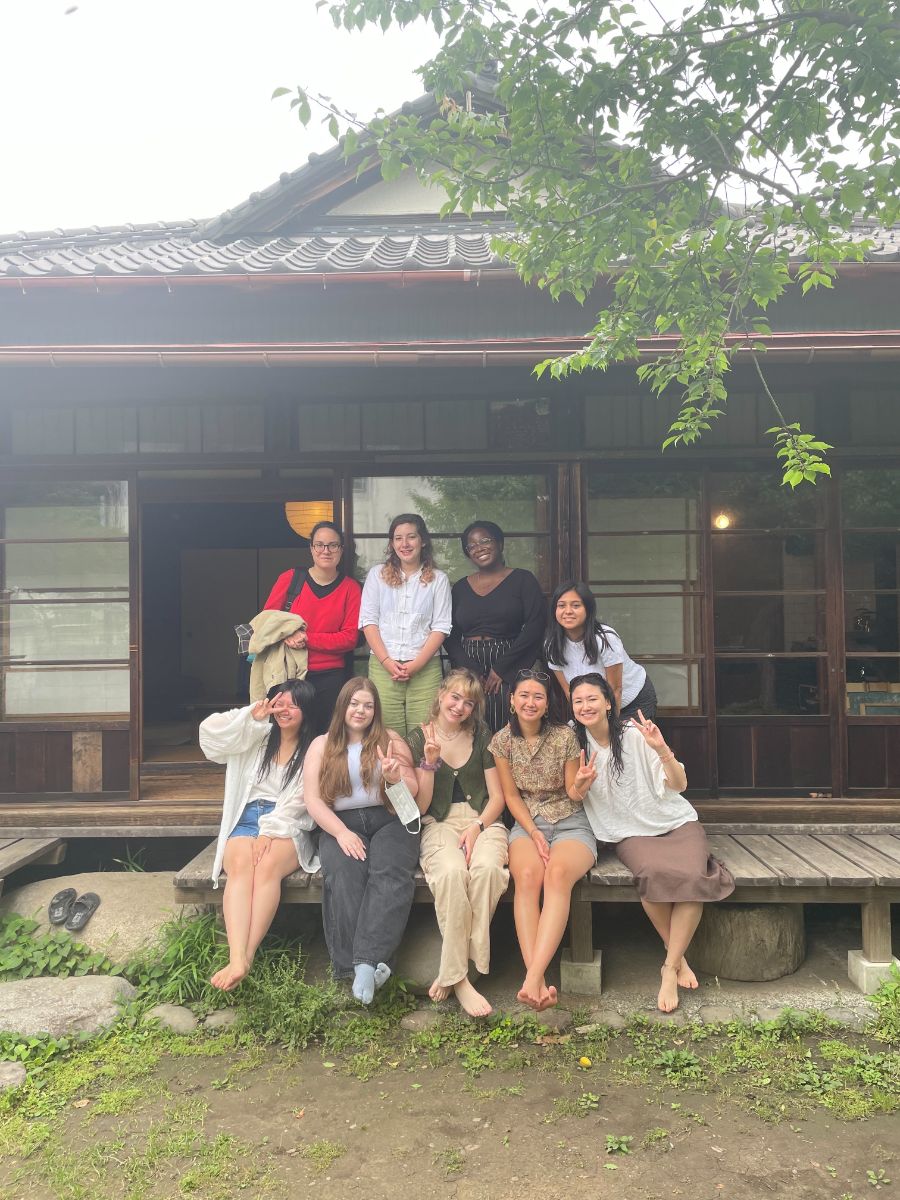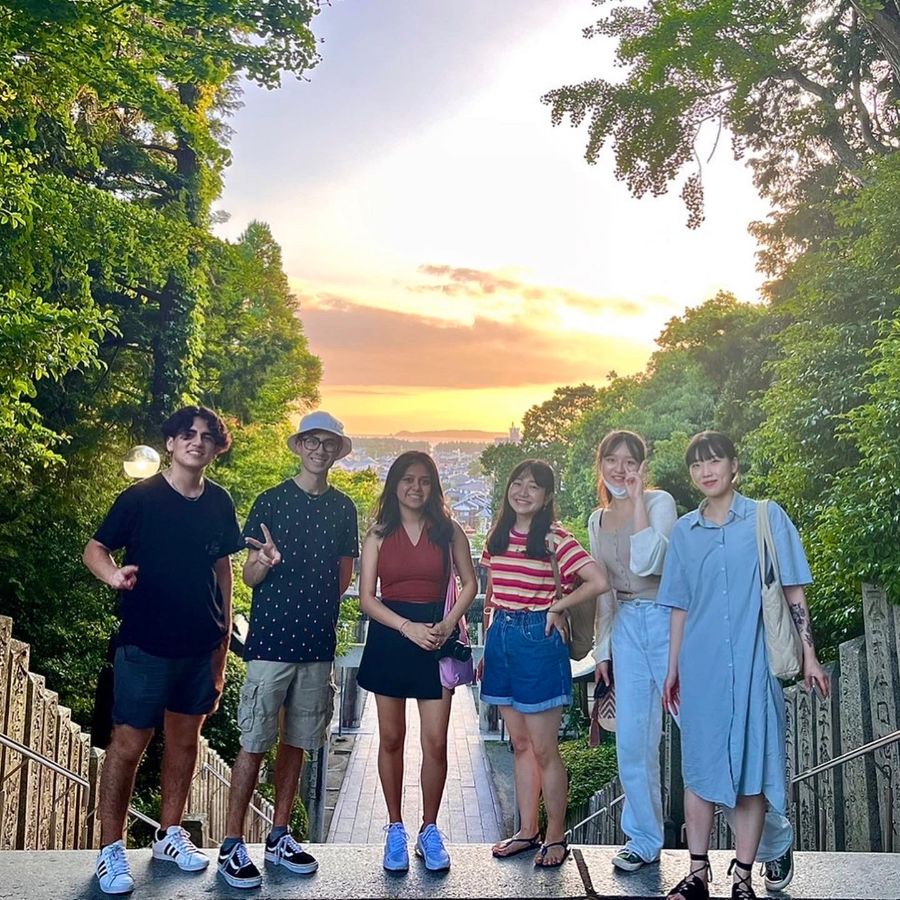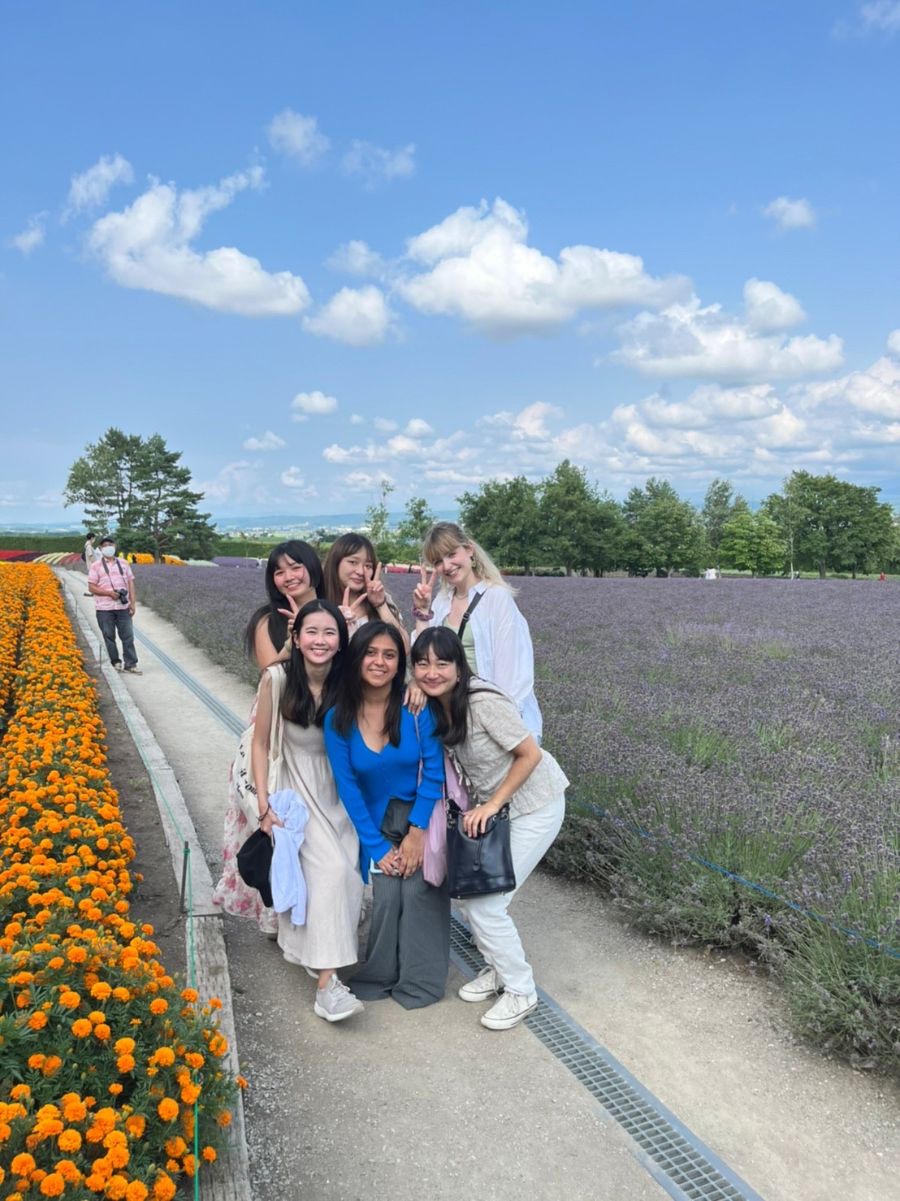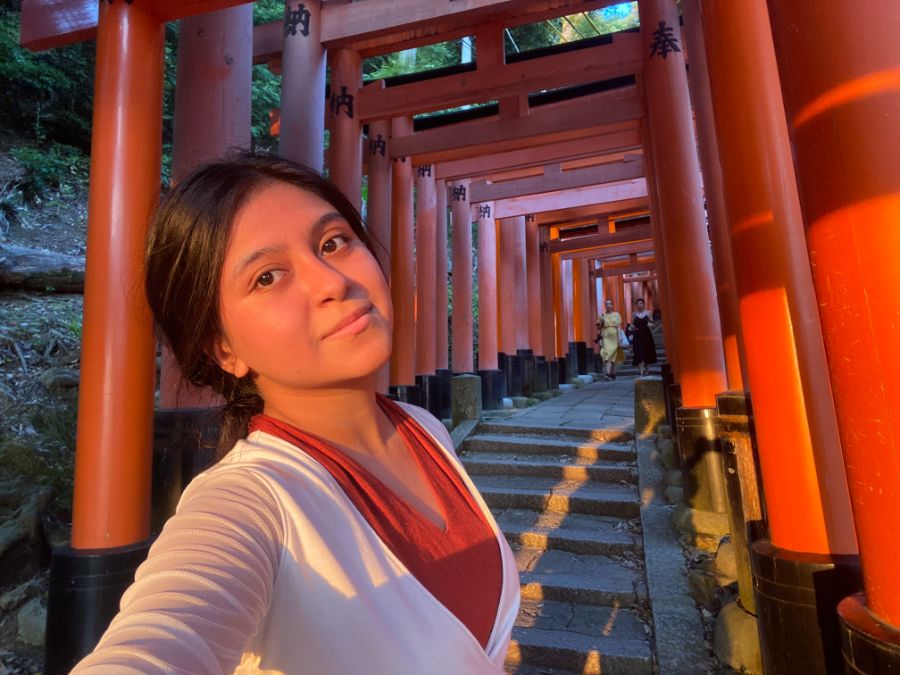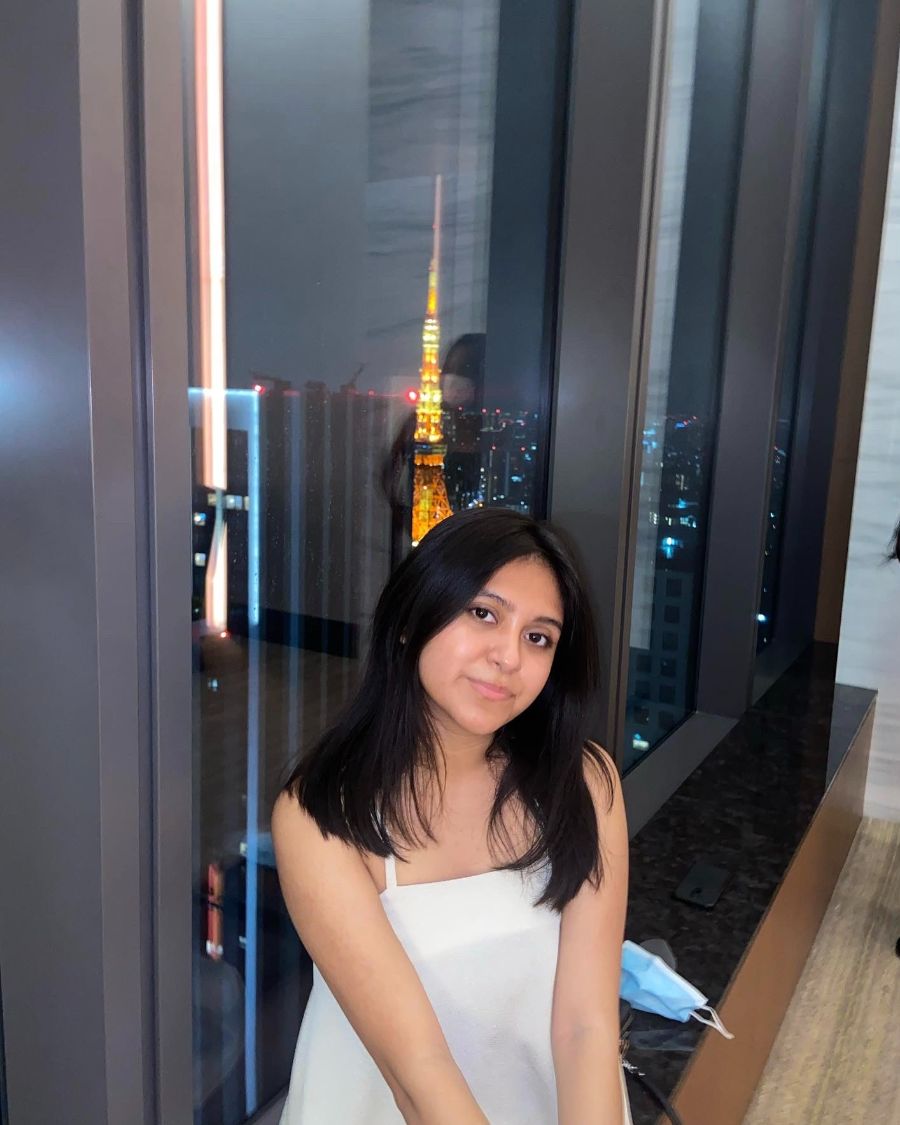Lesley Estrada Tovar
About My Study Abroad Program
Major/Minor: Global Studies and Political Science Major/ History Minor
Program: Waseda University
Location: Tokyo, Japan
Email: lesleyja@live.unc.edu
Term: Spring 2022
Why did you choose to study abroad and how did you select your program?
It was important for me to choose a school with a recognizable international community. Waseda had that environment for me. I knew I wanted to enroll in their political science department considering my focus on international politics at UNC, as I am both a Global Studies and Political Science major. Waseda has plenty of interesting English-based courses on their website, and the university has a beautiful campus in Tokyo, which made my decision simple.
What did you learn about yourself?
It’s always nice to experience a new country and culture, and this was one of the first times I’ve had the opportunity. I had to be more alert and aware of my surroundings because I didn’t speak Japanese. I learned that I was really good at communicating through context clues, and that I could have a connection with other Japanese people regardless of the language barrier. My dorm has told me that it’s so interesting how I communicate with one Japanese friend, because we communicate curiously with basic words and have a great friendship. Also, salespeople and I have managed to have wonderful talks about family, culture, and compliments. I learned that I like to have a whole understanding of what Japan is really like. The attractions and aesthetics of Japan were breathtaking, but looking inside the lives and ideas of the citizens is what I needed to respect and learn to understand.
What is one of your favorite memories from your program?
Every day was a blessing, but it was my first trip to Asakusa with my dorm that made the experience unforgettable. I gathered with about 20 students and we traveled 50 minutes away from where our dorm was. Some knew mostly Japanese, others knew mostly English. The ones that could speak both languages were so kind and patient with teaching us words or customs. Asakusa was magical, the cherry blossoms still lingered around while I ate matcha ice cream. I remembered I spilled out my life story to my RA, who is now one of my closest friends. After viewing the street food and the shops, we continued to walk over to Skytree. Viewing Tokyo at such a height was one of the coolest moments. Soaking in this culture shock with my dorm made me feel accompanied throughout my journey.
What advice do you have for future study abroad students?
Sometimes the language barrier can discourage people from going out and enjoying themselves. I advise students to learn at least the basics of Japanese, and to explore as much as they can. It’s also better to explore an unfamiliar country with people on the same journey. Japan is rich with different regions, traveling to other parts of the country is a must. I think the only way to face uncertainties is to push forward, go ahead and attempt what you find intriguing. Minor victories such as ordering food in Japanese can boost your confidence as the days go by. The internet is your friend, you can achieve so much by asking the right questions.
How do you identify?
Student of color, First Generation College Student, Scholarship Recipient, Rural County Resident
Could you share any experiences where your identity played a role in your time abroad?
I think being Mexican-American and a woman put up some challenges abroad. Japanese people may ask about one’s identity, and you have to shorten the complexity into a sentence or two. I believe that on the path of learning customs and appreciating this culture, it is important to compare it to one’s own to admire how complex we all are. These dialogues were some of my favorite parts of being an exchange student in Japan, because I was exposed to realities, perspectives, and new challenges. A lot of times I would be looked at funny when asked where I was from. I always responded United States first because it’s the only place I’ve truly known. But what people sometimes mean to ask is what my ethnicity is. Many people guessed Southeast Asian, and it was very different to get used to that. Being in an international setting, I then started to discover Japanese attitudes towards foreigners and other ethnicities. I believe that made me comprehend Japanese society, politics, and immigration patterns a lot more. And in terms of being a woman in Japan, I had some heartfelt conversations with my foreign and Japanese girl friends about some of the harsh realities regarding gender in Japan. Though most of the time I felt safe, there are still problems that need to be addressed and worked on. And at the end of the day, it is dire to have support systems to navigate through identity abroad. Living in a small dorm gave me the best support I could have asked for.
Is there any advice you would give to other students who share your identity?
We are all one of a kind. Even though I was one of three Americans in my dorm, I was a Mexican-American from North Carolina, and the other two were mixed Japanese-Americans from different states. We connected in some ways, but we are far from being the same. In terms of Spanish speakers, I was one of five. I had a friend from Chile, a Venezuelan-French friend who grew up in Spain, another Irish-Nigerian friend who happened to have studied Spanish, and another friend whose father was from Gibraltar. My point is that common characteristics can help you relate to people abroad, but sometimes embracing the diversity and learning from one another can make you feel not as lost in a foreign country. Everyone is going through changes and challenges. You have your own baggage to carry, but talking it out with someone else can clear up your mind, and sometimes a revelation on what your next step appears in the midst.
If you faced any challenges abroad, where could you turn to get the support you needed?
People I know within Japan, calls back home to friends and family, and internet search helped me centralize my challenges. There is no better way to talk about your identity than with people who know you or face similar challenges. If you need professional help as well, there are resources both from UNC and the host university, as well as those from the city. The modules that UNC prepares for us help us with any culture shock and identity challenges we might experience.
Memories
